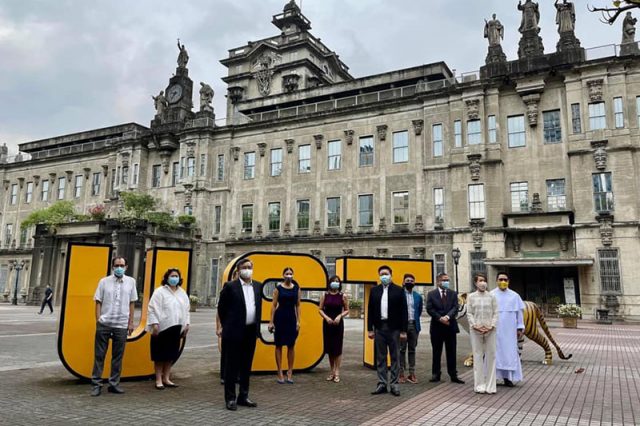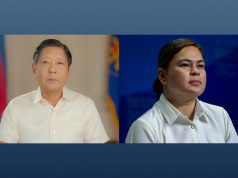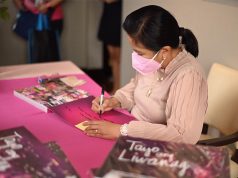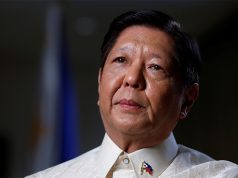
(Updated Feb. 24, 2022; 11:29 a.m.) With the upcoming vice presidential and presidential debates set to be held at a Catholic academic institution, the University of Santo Tomas, some Filipinos are hopeful that the electoral aspirants will emulate the university’s values.
UST on Thursday confirmed that it will be the venue for the upcoming debates hosted by CNN Philippines on February 26 and 27, from 5 p.m. to 7 p.m.
All of the aspirants are also invited to attend, not just survey frontrunners.
“Our Rector, Very Rev. fr. Richard G. Ang, O.P., PhD, inked the agreement with CNN Philippines, represented by its President, Mr. Benjamin Ramos,” the university announced on its Facebook page.
“A Memorandum of Understanding was likewise signed by UST, CNN, and Microsoft Philippines, represented by its Director of the Philippines Public Sector, Ms. Joanna Rodriguez,” it added.
As of February 14, CNN Philippines said that nine out of ten presidential bets have confirmed their attendance while eight out of nine vice presidential candidates agreed to participate.
The presidential hopefuls attending are labor leader Leody de Guzman, former presidential spokesman Ernesto Abella, cardiologist Jose Montemayor Jr., former defense chief Norberto Gonzales, entrepreneur Faisal Mangondato, Sens. Ping Lacson and Manny Pacquiao, Manila Mayor Isko Moreno and Vice President Leni Robredo.
Ferdinand Marcos Jr. declined to attend due to the schedules his team “have already confirmed for the UniTeam’s campaign commitments.”
Meanwhile, the vice-presidential candidates who confirmed their attendance are, former lawmaker Walden Bello, Manny SD Lopez, Rizalito David, Sen. Kiko Pangilinan, Carlos Serapio, Senate President Tito Sotto and physician Willie Ong.
Davao City Mayor Sara Duterte-Carpio, similar to her running mate, also declined the invite but her team did not give a reason.
Rep. Lito Atienza (Buhay party-list ) is also not attending the debate.
The debates will be moderated by CNN Philippines anchors at the UST Quadricentennial Pavilion, where aspirants are attending live with a virtual audience.
Following the announcement of the scheduled debates, members of the UST community and other Filipinos expressed hopes that the attending electoral bets would emulate the university’s school values during the debates.
“My dear Alma Mater, the Pontifical (and) Royal University of Santo Tomas! I pray and hope to God that the participants, the panelists, and moderators of this debate will honor the hallowed tradition of decency, truth, integrity, justice, and moral values that UST has been universally known to espouse since its founding in 1611, will be observed with utmost respect and due diligence!!!” a Facebook user wrote.
“Do not desecrate our house of truth with lies. Remember that our university’s motto is Veritas! To the candidates, just remember always that God is your judge!” another online user said.
“The Pontifical (and) Royal University of Santo Tomas is the RIGHT venue for HONESTY (AND) TRUE DEBATE. I am honored to be an alumna,” a different Filipino commented.
Another Facebook user hoped that more Filipinos will be “enlightened and strengthened by the Holy Spirit” during the debates.
Catholic university
UST is a Dominican institution of learning founded in 1611 under the patronage of St. Thomas Aquinas.
Its motto is “Veritas in Caritae” which means “Truth in Charity.”
The university’s core values are “competence, commitment and compassion.”
Its mission reads:
“The University of Santo Tomas, in pursuit of truth guided by reason and illumined by faith, dedicates herself to the generation, advancement, integration, dissemination, and application of knowledge to form competent and compassionate persons committed to serve the Church, the nation, and the global community.”
While its vision as a university is as follows:
“By 2030, the University of Santo Tomas, faithful to her centuries-old tradition of excellence, envisions herself as a leading Catholic institution of learning in the Asia-Pacific, committed to the integral formation of her stakeholders for social transformation.”
UST was also hailed a “Pontifical University” by Pope Leo XIII in 1902.
Pontifical Universities, according to Vatican.com, are “Roman Catholic universities which were established and are directly under the authority of the Holy See.”
“Given the fact that Pontifical Universities are under the direct authority of the Holy See, high moral standards and discipline are expected of students, and the teachings are also equivalent to the apostolic constitution of the Catholic Church,” the website said.
Being a pontifical university, the España-based school observes Catholic rites, celebrations and events that are relevant to the faith.
It also receives the pope, the highest authority of the Catholic Church, whenever he visits the country.
The school in 1947 was also granted the title of “The Catholic University of the Philippines” by Pope Pius XII.









